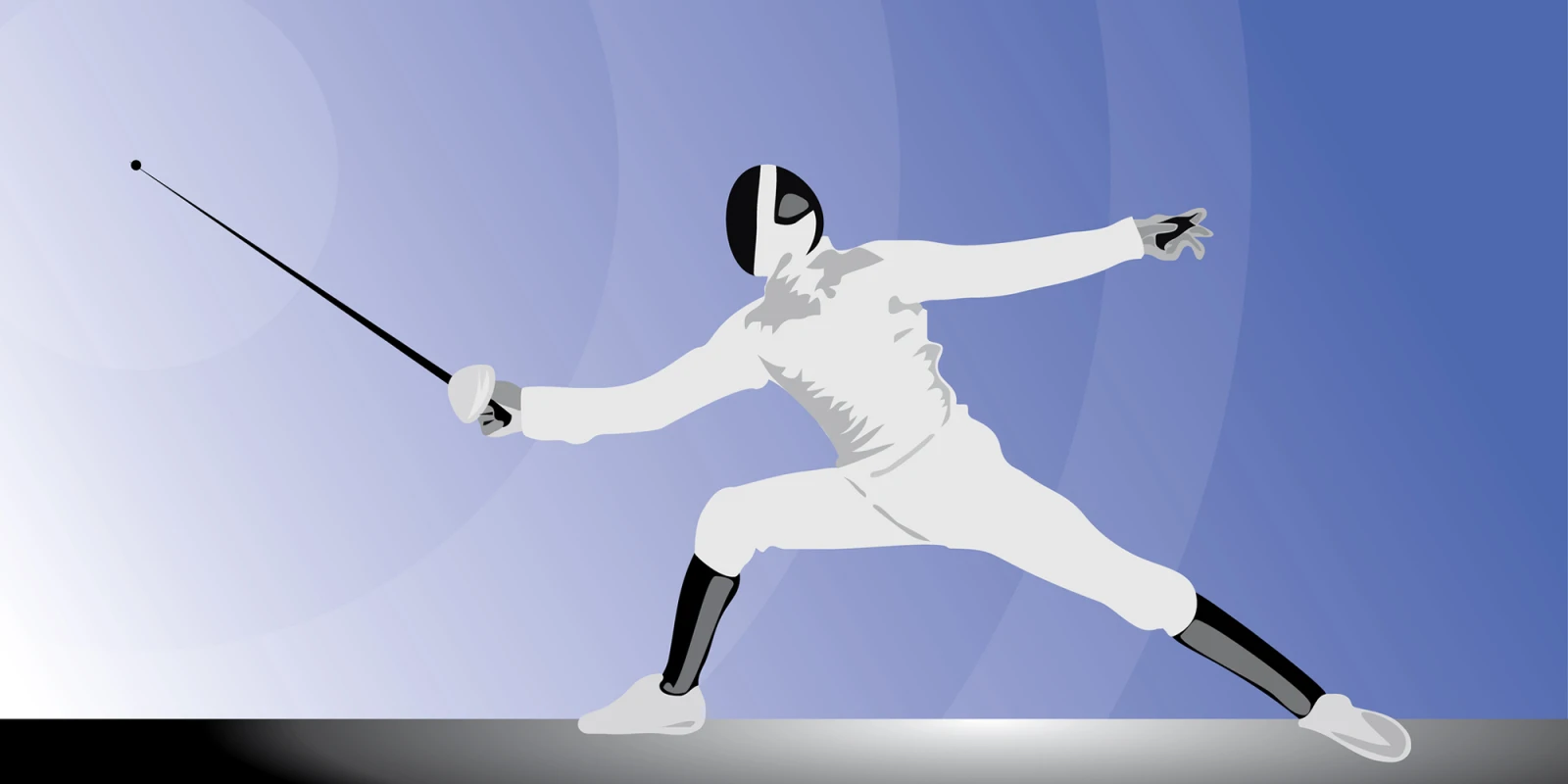
When I was applying for medical school, one of my biggest accomplishments was my success as a Division I athlete. By my senior year, I qualified for four NCAA championships, was the first person to win individual conference championships all four years, and was named an All-American. Most importantly, I started fencing as a freshman in high school.
Walking into my interviews I was excited to talk about fencing not only because of my passion, but because fencing and athletics had a large part in my development as a student and future doctor.
When I arrived to one of my interviews, my interviewer asked about my extracurricular activities and once I began talking about fencing, she quickly brushed me off to discuss my research. While understandable because of the emphasis the medical field places on research, I was surprised and, quite frankly, disappointed we never returned to our fencing discussion. Yes, research is important, but let’s be honest about what the majority of college students are actually able to achieve. In college, we are often stuck in a lab and assigned projects we are not passionate about. Occasionally, we are given (or create) the autonomy to develop our own projects which may or may not lead to a publication. Why are we putting this on a pedestal compared to other experiences?
Having done several years of research in orthopedic surgery and performing as an athlete for half of my life, I can truly say both are equally important to my development as a working professional and a future doctor. Athletics should be recognized as more influential to medical school candidates for several reasons.
Living Better, Giving Better Patient Care
Health and wellness are incorporated into almost all specialties. How can we encourage patients to live a healthy lifestyle if we don’t come from an active background ourselves? When we make suggestions to be active at least 30 minutes a day, we’ll truly understand what methods to recommend, the difficulties of complying to a schedule, and how to persevere through those difficulties. All physicians don’t need to be D1 athletes, but if the medical community places more emphasis on athletics when looking for our medical school candidates it can only benefit our patients.
Athletes Can Handle High Intensity Situations
There are very few times in school alone where are you will be tested in high intensity situations. Regardless of the sport, a large part of athletics is making decisions and performing a specific action at a specific time and executing it to the best of your ability, if not perfection. This is very similar to providing patient care and making decisions as a physician. What other way to guarantee students have some experience operating under these conditions than to encourage more students to be athletes?
Athletes Are Forced to Be Great Students
Student athletes usually have excellent time management because they’re accustomed to balancing school with practice and competitions. Their time management skills should easily translate to handling the hectic workload associated with medical school. In addition, athletes are accustomed to experiencing failure repeatedly and more importantly, learning from these failures. Both the classroom and clinical aspects of medical school have a large learning curve and demand a resilient attitude. Athletes may find it easier to make these adjustments.
Experience Working With a Team
Regardless of whether you belong to an individual or team sport, collegiate sports involves being a part of a team. This is the best time to understand how to work with others and how to communicate with others, especially in high intensity situations. This can also provide leadership opportunities. From my experience as a team captain, I know it is a much harder job than expected. It’s a great opportunity to learn how to motivate your team and encourage each athlete to be the best team member possible. This is only beneficial later in life when you have a team of medical staff and students.
Large businesses and major business media sources such as Forbes and Business Insider have since recognized the value in employing former student athletes. It’s time for the medical community to follow suit.
Kamali Thompson is a MD/MBA student completing a research year in orthopedic surgery and will be applying for the 2020 match. She is a team USA fencer and 2020 Olympic hopeful. She is also an active blogger on her website, Saber & A Stethoscope, and active on twitter (@Kamali_Thompson) and Instagram (@dr.mali.mallz). She is also a 2018 - 2019 Doximity author.






